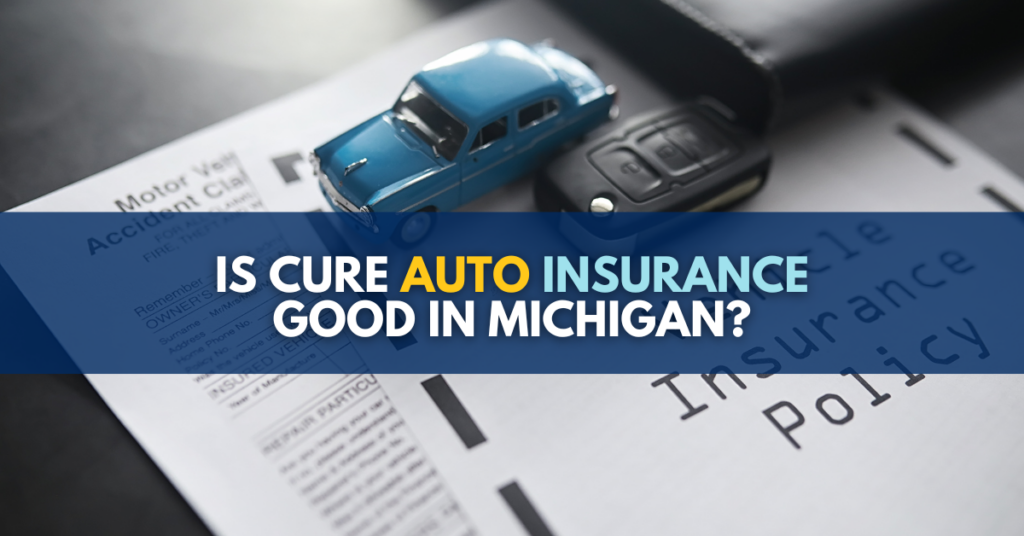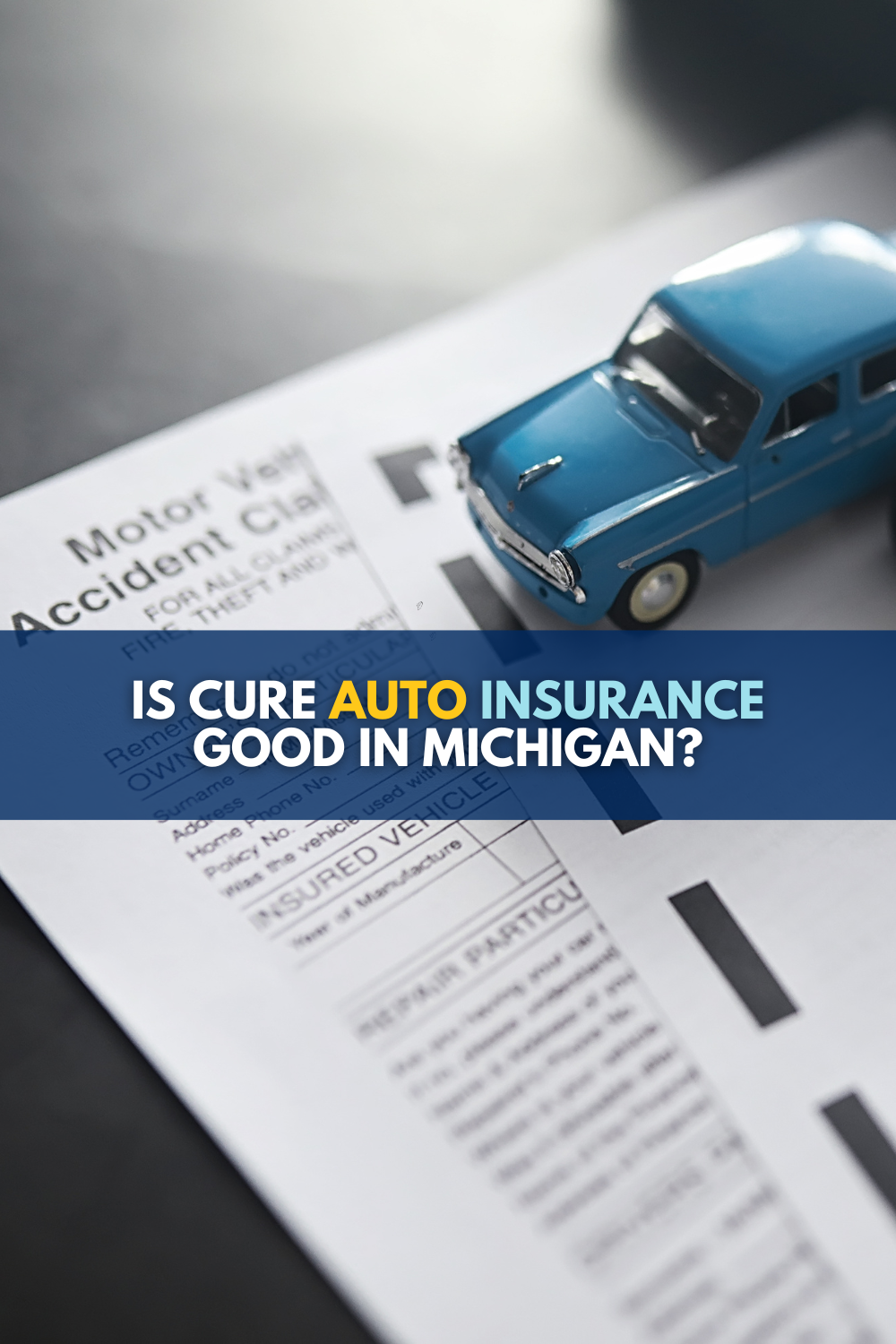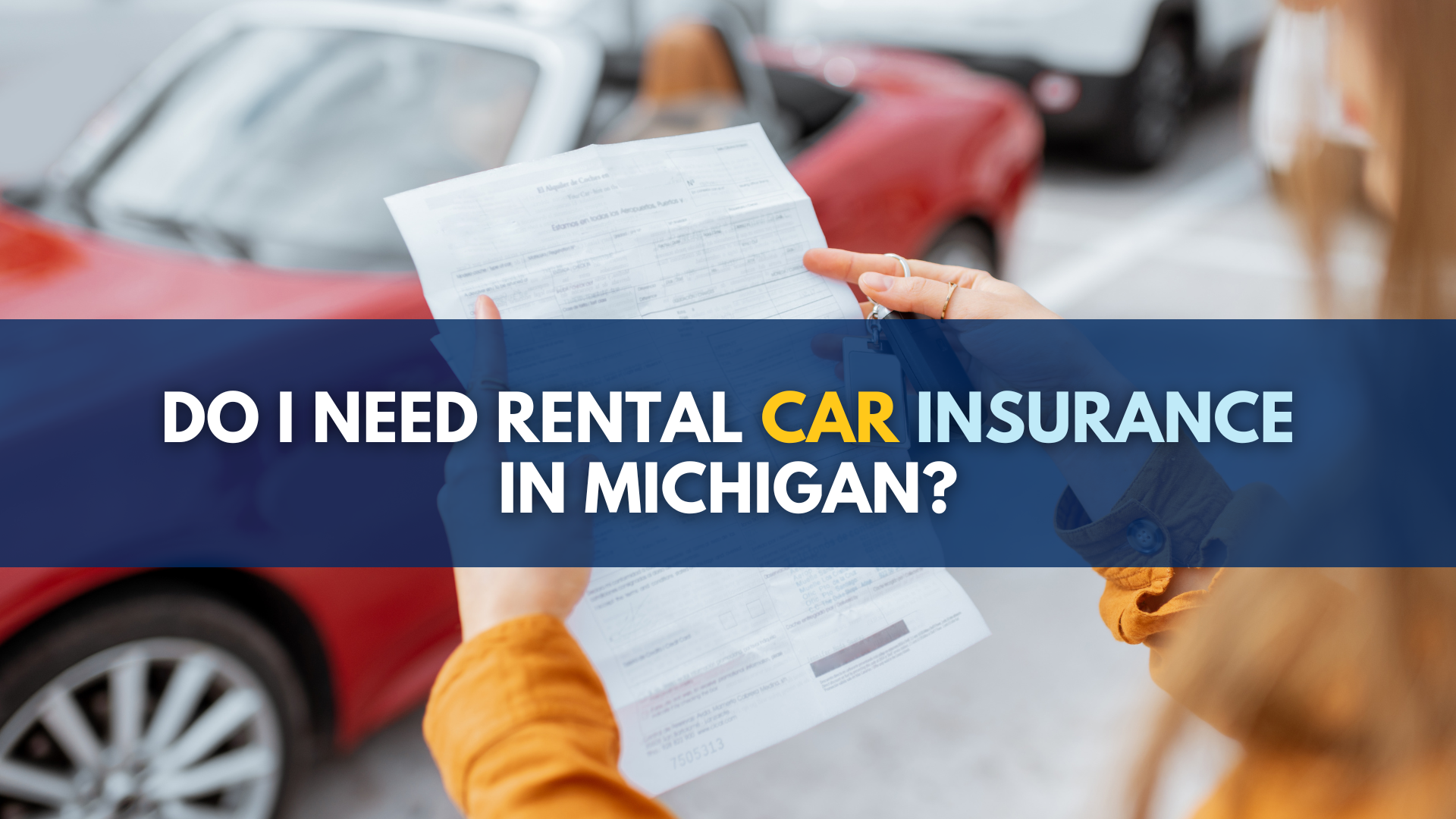
Cure auto insurance is not good for Michigan drivers. They charge a 25% “deposit” on top of their premium. They may second-guess your doctor and refuse to pay for your surgery. They give horrible advice to drivers to under-insure, leaving them personally exposed to crushing medical bills. And if you have to file a claim? Be prepared for the claims adjusters to flyspeck your application to try to find a reason to avoid paying on your claim.
But don’t believe us. Believe what their own customers have to say about the company.
Data from the Michigan Department of Insurance and Financial Services (DIFS) and the National Association of Insurance Commissioners (NAIC) show that Cure Auto Insurance own insureds complain about how the insurer handles claims, that settlements and settlement offers are “unsatisfactory” (i.e., unfair and too low), and how frequently the company denies paying claims.
Is Cure auto insurance in Michigan?
Unfortunately, Cure Auto Insurance is in Michigan. This insurance company, whose headquarters are in New Jersey, entered the Michigan market in July 2021. Interestingly, despite doing business in the state and selling auto insurance policies to drivers since that time, the insurer did not open an actual, physical office in Michigan until August 2023.
In August 2023, the Cure Auto Insurance – whose full name is Citizens United Reciprocal Exchange – insured approximately 75,000 drivers in Michigan, according to The Detroit News.
To put that in context, in Michigan in 2022 (the most current year for which data is available), there were 7,366,080 “licensed drivers” and 9,426,574 “vehicle registrations,” according to Michigan Traffic Crash Facts 2022 Facts At-a-Glance.
Drivers must pay 25% deposit on top of premiums
Cure Auto Insurance, which is a relative newcomer to Michigan, makes drivers pay an upfront “deposit” in addition to paying the cost of their auto insurance premium. The Detroit Free Press reported that the “deposit equals 25% of a customer’s initial base premium.”
Refusing auto accident victim’s freedom to choose a doctor
In 2022, Cure Auto Insurance refused to provide coverage and pay for a Michigan car accident victim’s “spinal surgical procedure” because the insurer claimed the surgery was “not medically necessary to treat” the victim. In case 22-2144, the Special Deputy Director DIFS ordered Cure to pay for the surgery.
Specifically, despite the insurance company’s opinion to the contrary, the board-certified neurological surgeon with 30 years of experience who reviewed the case at DIFS’s request determined that “medical necessity [for the surgery] was supported on the date of service at issue and the treatment was not overutilized in frequency or duration based on medically accepted standards.”
The surgeon also noted that the “medically necessary” surgery was “justified and in accordance with the standard of care.”
Consequently, DIFS reversed Cure auto insurance’s erroneous denial of coverage and ordered the insurer to pay for the cost of the surgery as well as “interest on any overdue payments.”
Cure doesn’t only refuse to pay for medically necessary surgeries. According to Scott Watson, an independent appraiser who helps people get more money for “total loss car” collisions, Cure routinely refuses to pay any claims for vehicle damage. According to Mr. Watson, who works with nearly every insurance company in Michigan, Cure routinely attempts to deny claims, and they attempt to rescind and void policies at a much higher rate than all the other insurance companies he deals with.
Bad advice on No-Fault medical coverage
Cure insurance is setting up its customers for crushing medical and financial debt and personal bankruptcy by routinely discouraging customers from purchasing adequate medical coverage.
What we are hearing anecdotally is that Cure Auto Insurance is also routinely advising its Michigan customers to lower their RBI (residual bodily injury) limits from $250,000 to $50,000. While the customer may save a few dollars by doing this, if they or someone driving their car ever causes a serious auto accident, this can lead to a judgment far in excess of the insurance policy limits, leading again to personal exposure and bankruptcy.
Unlimited No-Fault medical benefits coverage means that a person’s medical bills will be covered regardless of what they total up to. There is no dollar limit. This is crucial coverage for auto accident victims and it is what our own attorneys strongly recommend to all Michigan drivers.
But Cure pushes its customers in the opposite direction. The picture that appears to be emerging is that Cure Auto Insurance is actively discouraging Michigan drivers from protecting their families with unlimited medical and, instead, is encouraging them to choose policies with fixed lower PIP coverage limits – or opting out of No-Fault medical entirely.
In cases involving serious and catastrophic injury, the result will be utterly devastating for Michigan Cure Auto Insurance customers. It means people cannot get the critical medical care and treatment they need. It leads to substandard care and medical “warehousing.” And, it leads to crushing medical debt and personal bankruptcy.
In fact, according to news accounts, Cure seems to brag that it is discouraging drivers from selecting the best medical coverage for their families.
According to The Detroit News, the CEO of Cure said that the “most important stat I think is that 94% of all the people that buy car insurance from CURE are choosing an option that was introduced under this new law.”
Similarly, Crain’s Detroit Business noted that “of the CURE-insured drivers, the company reports 94% have opted for less than unlimited PIP.”
Ignoring necessary coverage to protect you
Our anecdotal experience and that of other Michigan persoanl injury attorneys is that Cure Auto Insurance is also discouraging its insureds from purchasing adequate liability insurance and forgoing necessary and crucial coverages such as “uninsured motorist coverage,” “underinsured motorist,” and collision.
Avoiding paying out on claims
What the auto accident lawyers at Michigan Auto Law and throughout the state are experiencing are instances showing that Cure Auto Insurance is growing increasingly aggressive in trying to find ways to avoid having to pay out on their insureds’ auto accident claims after they have been injured in a car crash.
Three avoidance techniques that appear to be gaining favor with Cure are:
- Medical Necessity – Using hired-gun insurance company doctors – like those biased physicians hired for exorbitant sums by insurers to conduct unfair, biased IME exams to create a reason for denying a claim or cutting off benefits – an auto insurer refuses to pay for vital medical care by claiming the procedures, treatments or medications are not medically necessary. An example of this is discussed above and is documented in the 2023 order from the DIFS Special Deputy Director.
- Rescission – This occurs when, after a crash occurs and a driver files a claim, an auto insurance company will comb through the application they received, attempting to try to find a reason to “rescind” the policy and, thus, nullify all coverage.
- Failure to cooperate – Most insurance policies have “cooperation” provisions which require insureds to cooperate with their insurer in the handling of their claim. Failure to cooperate gives the insurer authority to deny the underlying claim. What is troubling is that what we and others are seeing anecdotally is that there seems to be a pattern of Cure becoming increasingly aggressive in using this “duty to cooperate” as a way to deny claims. While this is anecdotal, it’s important to note that our attorneys deal with every insurance company in Michigan, and no other insurance company is as aggressive as Cure Auto Insurance is in attempting to rescind policies and finding ways to refuse to pay out on valid claims.
Complaints against Cure auto insurance
Cure Auto Insurance’s complaint ratio, i.e., the total number of complaints from its insureds divided by the millions of dollars collected in premiums from its insureds, is among the highest in Michigan, according to data reported by the Michigan Department of Insurance and Financial Services (DIFS).
77% of the consumer complaints against Cure Auto Insurance in Michigan in 2022 had to do with claims handling.
This does not bode well for drivers paying their premium dollars to Cure, which just entered the market in July 2021.
According to the National Association of Insurance Commissioners, the bulk of the complaints from insureds dealt with delays in claims handling, unsatisfactory settlements and offers, and denials of claims.
Is Cure Auto Insurance legit in Michigan?
Cure auto insurance started selling policies in Michigan in July 2021, only after the new No-Fault fee schedule which slashed medical providers fees by 45% took effect. They charge premiums plus a “deposit.” After refusing to pay for an accident victim’s surgery, DIFS ordered them to pay plus interest.
Additionally, the anecdotal evidence suggests Cure Auto Insurance is encouraging Michigan drivers to be underinsured and personally exposed, by encouraging them to select lower PIP No-Fault medical coverage or opting out altogether, and discouraging people from purchasing adequate RBI, or bodily injury insurance if they cause an auto accident. Also, they appear to be dissuading customers from purchasing “uninsured” and “underinsured” motorist coverage as well as collision insurance. Uninsured and underinsured motorist coverage are two of the most important coverages that people purchasing auto insurance can buy. They cost very little, and the protections they offer are critical if you or a loved one is ever injured in a serious auto accident.
Finally, auto accident lawyers who help crash victims are seeing Cure attempt to get out of paying claims by attempting to rescind policies and/or claim that injured victims are “failing to cooperate” with Cure’s handling of their claims far more often than they are with all the other insurance companies that they see.
Is Cure auto insurance in Detroit?
The Detroit News reported in 2023 that Cure, whose actual name is Citizens United Reciprocal Exchange, insured 75,000 drivers in Michigan and 58% of them were Detroit residents.
What states have Cure Auto Insurance?
The state that have Cure Auto Insurance are Michigan, New Jersey and Pennsylvania. The insurer began selling car insurance in Michigan in July 2021. It didn’t open an actual, physical office in the state until August 2023.
Injured in a car accident? Call our attorneys now!
If you were injured in a car accident in Michigan, call now (248) 353-7575 for a free consultation with an experienced car accident lawyer. There is no cost or obligation. You can also visit our contact page or use the chat feature on our website.
Michigan Auto Law is Michigan’s largest and most successful law firm that specializes exclusively in helping people who have been injured in auto accidents.
Our secret? Our attorneys deliberately handle fewer cases than other personal injury law firms. This allows us to focus more time and attention on our cases.
Unlike other law firms, our attorneys are never too busy to promptly return phone calls and answer questions.
We have more than 2,000 5-Star reviews that reflect this care and attention to detail.
More importantly, this client-focused approach leads to better and faster settlements for our clients. Michigan Auto Law has recovered more million-dollar settlements and trial verdicts for motor vehicle accidents than any other lawyer or law firm in Michigan. We’ve also recovered the highest ever reported truck accident and car accident settlement in the state.
Call now so we can start making a real difference for you.



